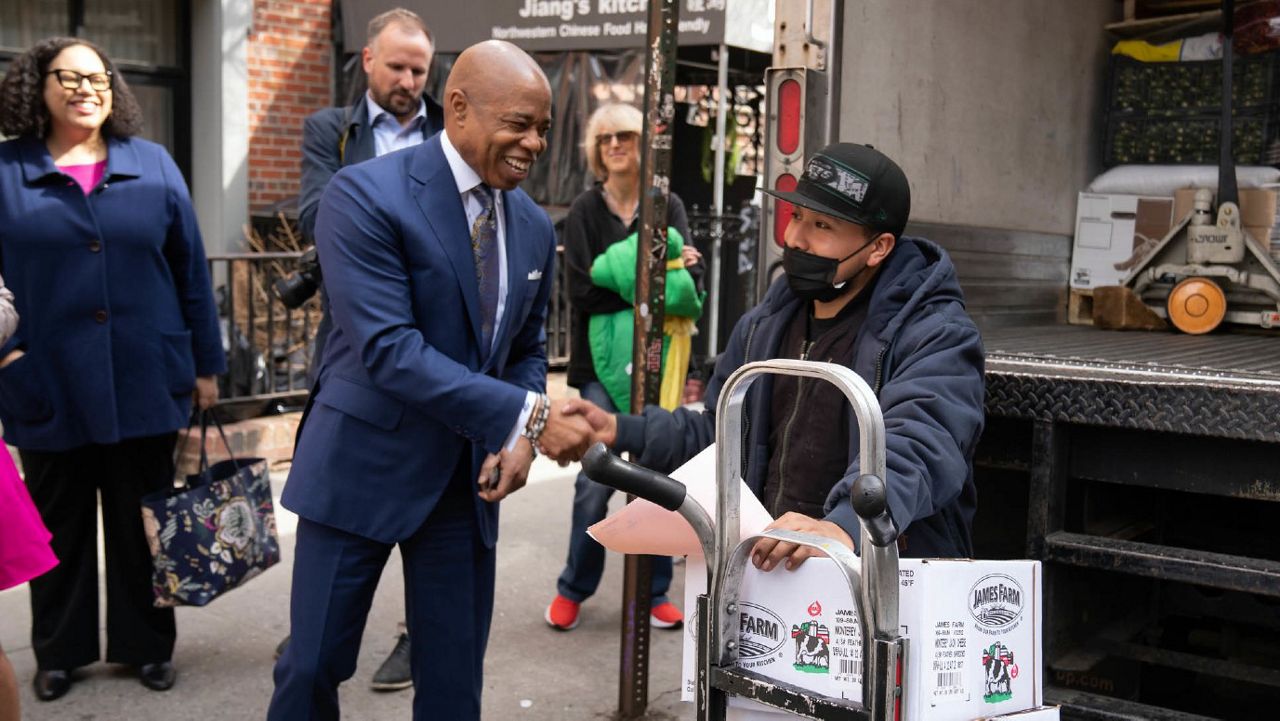Two years into the pandemic that has gripped New York City, Mayor Eric Adams hopes to steer his city toward an economic revival by luring tourists back, beautifying the streets and embracing New York’s looming legal marijuana industry. York.
Adams, a Democrat who was elected last year with a pro-business, anti-crime message, unveiled an economic development plan Thursday that he said will usher in a “New York.”
“The recovery of New York City cannot and will not be as things were: we will rebuild, renew and reinvent our city and our economy for today, tomorrow and generations to come,” the mayor wrote in a message on social media. .
“Read the plan now,” the message continues.
New York City’s recovery cannot and will not be about going back to the way things were — we are going to rebuild, renew, and reinvent our city and our economy for today, tomorrow, and generations to come.
Read the plan now: https://t.co/UbXIgkCmiW pic.twitter.com/ZcRMiJVHDg— Mayor Eric Adams (@NYCMayor) March 10, 2022
“We will never be the same. COVID has changed the game. And we have to be prepared to win the game,” Adams said.
New York City, with a population of 8.8 million, became the first epicenter of the COVID-19 outbreak in the US and was at the center of the storm again last winter when the omicron variant.
COVID-19 wrecked New York City’s economy, causing the unemployment rate to jump from 3.7% prior to the pandemic to more than 20% in May 2020.
The rate in December was 8.8%, higher than the rates for the state and the United States as a whole. Some 66,000 businesses have closed at some point, and more than 26,000 permanently, according to the mayor’s office.
As the rates of cases and deaths from the virus have slowed, the new mayor has tried to turn the page, declaring that the virus cannot control the lives of New Yorkers and that the city must come back.
Last week, Adams announced the end of two of the toughest COVID-19 safety measures in New York City, eliminating masking requirements in public schools and requiring patrons of restaurants, gyms and other venues to be vaccinated.
“We can’t stumble post-COVID. We need to start thinking about redefining what our city is going to look like,” Adams said Thursday.
The mayor’s plan calls for helping small businesses and cultivating specific industries, such as pharmaceuticals, medical technology and other parts of the life sciences sector, manufacturing, video games and the legal marijuana industry.
New York legalized the recreational use of marijuana last year for those 21 and older, but recreational sales aren’t expected to begin until late this year or early next, as the state irons out regulations of what is expected to happen. be one of America’s largest legal markets for weed.
The mayor’s office estimates that the sector will generate $1.3 billion in sales and between 19,000 and 24,000 jobs.
Adams has already promoted the industry, offering rolling papers and a fake bag of marijuana to Stephen Colbert during an appearance on his late-night show, while also showering the host with New York-themed gifts.
Adams, a former captain with the New York Police Department, said Thursday that his office is committed to helping the industry develop in a socially equitable manner, helping those impacted by the war on drugs find opportunities in industry, such as pro bono legal services, assistance with licensing and financing, and marketing.
Adams said he supports a recently announced plan by the state to give the first licenses to sell marijuana to those with marijuana-related convictions.
“We have unfairly targeted the black and brown communities during marijuana arrests, which I fought against when I was a police officer,” Adams said.
The mayor said he wants to bring New York City closer to tourists and invite people from all over the world to visit and spend money. Tourism fell from 66.6 million visitors in 2019 to 22.3 million in 2020 when the pandemic hit.
Adams not only wants to boost the city’s image through marketing, but has said he wants to improve public safety by reducing crime and addressing the perception of crime and “disorder.”
Adams’ new plan also calls for a focus on city beautification, prioritizing street cleaning and removing graffiti and litter. Under the plan, the city will add benches, bike racks, planters and other amenities to the city’s business districts, and establish long-term standards for outdoor street and sidewalk dining structures, which have been a lifesavers for restaurants in the city.
“We have to have a clean city, and every part of the city is a reflection of how we feel about ourselves,” Adams said. “When our streets are not clean, it sends the wrong message.”
–


